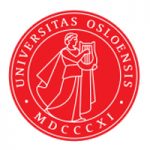项目介绍
OVERVIEW
Atmospheric scientists use principles of classical physics to study, explain, and predict atmospheric behavior on scales ranging from turbulent eddies through storm clouds to earth’s global circulation. We are motivated by weather-related big societal issues including climate change, air quality, and renewable energy. Important tools include big data (statistics, machine learning, scientific programming), geographic information systems and remote sensing. Our methods include lab experiments, field experiments, numerical weather prediction, and climate simulation. We support our grad students with government grants for pure research, with industry contracts for tailored meteorological applications, and with teaching assistantships. The UBC atmospheric science (ATSC) program is interdisciplinary, with professors in the departments of Earth, Ocean and Atmospheric Science; Geography; Chemistry; Mathematics; Soil Science; and Mechanical Engineering. Internationally recognized textbooks written by ATSC professors over the past four decades’ span topics from the atmospheric boundary layer and urban climates to practical meteorology.
WHAT MAKES THE PROGRAM UNIQUE?
The Department of Earth, Ocean and Atmospheric Sciences at UBC, one of the largest geoscience groups in Canada is composed of over 40 full-time faculty, a staff complement of 30, a total of 40 research associates and postdoctoral fellows.
We engage in fundamental research in atmospheric science, both independently and in co-operation with federal and provincial laboratories and other research groups around the world. The emphasis of the research is on studies of processes and developing physical understanding of the atmosphere. The research commonly involves field or laboratory measurement and observation; data analysis and interpretation; and numerical model construction, modification and validation.
The group is well equipped for research on most characteristics of the atmospheric boundary layer. In addition to conventional meteorological instruments, there are systems for sensing all component fluxes of the radiation and energy budgets, eddy correlation systems for turbulent heat fluxes; two 30 m towers, one fixed and one mobile; mini-sonde, two tethersondes and ozone sondes, and acoustic radar for probing boundary layer structure; and a portable network of ten independently logged anemometers and thermometers. The group is well supplied with analogue and digital data logging systems, micro-computers and facilities for digital image analysis. It also operates its own vehicles.
For computer modelling, there is a “Monster” IBM Linux cluster with 264 processors + 8 itanium processors. There are also two smaller Beowulf clusters, and numerous workstations.
联系方式
电话: 604 822 2211相关项目推荐
KD博士实时收录全球顶尖院校的博士项目,总有一个项目等着你!






